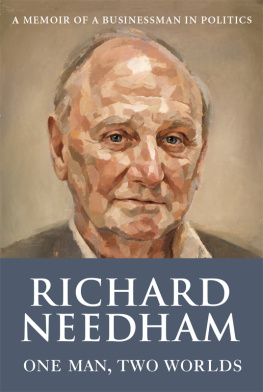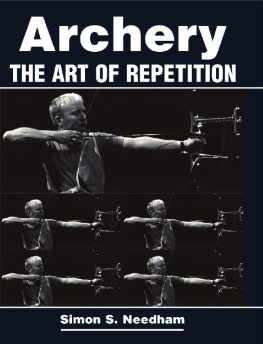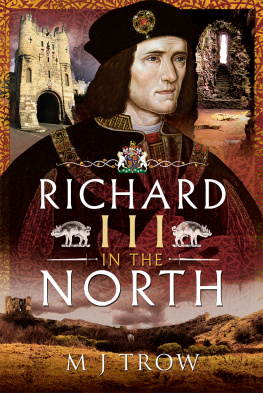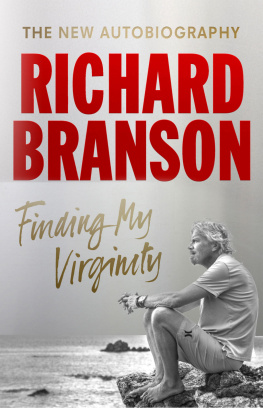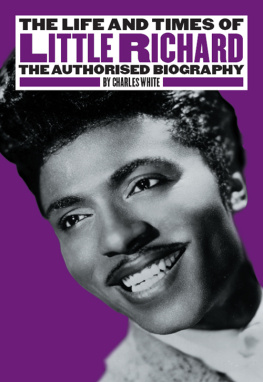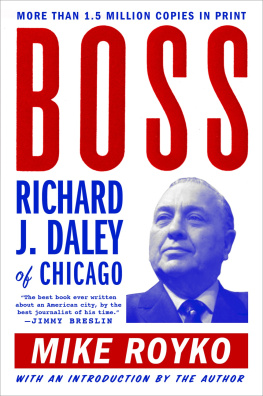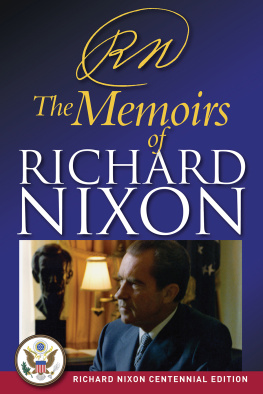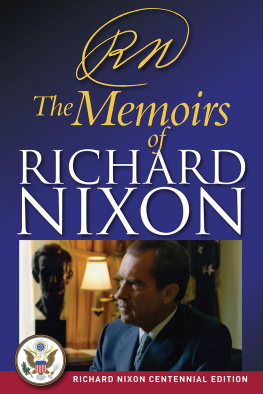Richard Needham was MP for Chippenham for eighteen years. During that time he was Britains longest-serving minister in Northern Ireland, responsible for its economic regeneration. In 1992 he was promoted to Minister of Trade, in charge of the UKs export strategy. In 1997 he left politics to return to industry. He was a director of Dyson for sixteen years and chairman of Avon Rubber PLC for five. He has been involved in many other large, medium and small companies covering many sectors. He has three grown-up children and lives with his wife in Gloucestershire.

Richard Needham has spent a lifetime in business and politics, starting at the bottom and having reached the top finding himself at the bottom again. The one constant in his varied life has been the management theory espoused by Douglas McGregor called Theory X and Theory Y.

RICHARD NEEDHAM
ONE MAN, TWO WORLDS

Thanks
Without Sissy this book would never have been started, let alone completed and without whom none of what I have achieved would have been possible.
I would also like to thank Helen Wright, my editor, who has corrected my grammar, improved my vocabulary and whose enthusiastic support has carried me along.
First published in 2021 by Blackstaff Press an imprint of Colourpoint Creative Ltd Colourpoint House
Jubilee Business Park
21 Jubilee Road Newtownards BT23 4YH
Richard Needham, 2021 All rights reserved
Richard Needham has asserted his right under the Copyright, Designs and Patents Act 1988 to be identified as the author of this work.
Front cover portrait by Jonathan Yeo
A CIP catalogue record for this book is available from the British Library
PRINT ISBN: 978 1 78073 315 9
EPUB ISBN: 978 1 78073 320 3
MOBI ISBN: 978 1 78073 321 0
www.blackstaffpress.com
Prologue
I CAME FROM a family of barely solvent aristocrats, who distrusted trade and despised politics. For some inexplicable reason, however, I had always been fascinated by both. From the age of fifteen, I was determined that I would first make some money, and then enter politics and change the world. Not for me the uneventful, minor military career, probably in the Grenadier Guards, that had been the fate of generations of Needhams before me.
While I was at Eton, a visiting politician who had come to speak, gave some shrewd advice: Know your country from top to bottom, north to south, east to west. Gain as broad an experience as you can in as wide a variety of jobs as you can. Then make up your mind which party you want to join and what aspects of politics you want to make your own. It was advice that I was to follow and that served me well.
On 1 April 1967, I boarded a flight bound for Jamaica. I was marketing manager at a medium-sized engineering company, Sterling Industries, based in the west of England. Sterling Industries had the agency for a Cleveland-based company called Trabon, which sold oil-lubricating equipment to steel mills. They had invited their distributors from around the world to a conference in Jamaica, for a weeks intensive interactive tutorials run by top lecturers from the Harvard Business School who wanted to mix teaching with rum and Coke. The top Sterling management thought all this case-history based learning was a bit beneath them as their careers had already taught them all they needed to know so I, a twenty-five-year-old from marketing a subject which they believed had little relevance was deputed to go. The trip was to change my life.
The case histories were indeed fascinating, not least the one on how Hugh Hefners Playboy company had become the single largest purchaser of Scotch in the USA by only serving the customers in their clubs steak and whisky. But it was the relentless concentration that was placed on the importance of individual motivation and the necessity of engaging employees that had the greatest impact on me. The emphasis on using employees talents: trusting them, organising workflows that gave them responsibility and engagement and that created a common sense of corporate ambition, making them responsible for the success and profitability of their companies, and stretching them all to the limits of their abilities, gave me a new vision. What I was learning was far from what was happening in strike-torn, class-ridden British industry.
The professor who had more than any other encapsulated the new industrial psychology was called Douglas McGregor and his book was The Human Side of Enterprise. His thesis was based on studies of people in work, pioneered by Professor J.A.C. Brown in England in the 1950s and the Australian Elton Mayos research in the 1920s and 1930s at the Hawthorne Works in Chicago. This work proved conclusively that so-called Scientific Management based on piece work (i.e. paying people for each item produced), far from being a motivator, resulted in shoddy workmanship, as well as high levels of absenteeism, conflict and disputes.
McGregor had brought together the strands of this work into what he called Theory X and Theory Y. Theory X stated that if you give a person the choice between more work or less, on balance they would prefer more leisure time. Give him the choice between more or less responsibility, the average person would prefer to stay where they were. Most people worked for money, and it was the chance of more money that was the major motivator in getting them up in the morning to work harder and more productively. Most working peoples loyalties were predominantly governed by their families and their class, not by their employer or the organisation for which they worked. If someone was slipshod or inadequate, fear of the sack was a principal motivator in getting them to change their ways.
Theory Y postulated that of all the factors motivating man to work in modern society, money was the least important. Of course, people would not work for nothing, but in Abraham Maslows Hierarchy of Needs, money was a reward a hygiene factor, like clean toilets not a motivator. At best it was part of a companys reward system. Give someone the choice between more responsibility or less, they would choose more. Give them more work or less work, they would welcome more. It was a natural part of anyones character to want to be part of a team and to make it ever more successful. An employees loyalty to their organisation or their employer was as natural as any other loyalty.
The key to a successful company was involving the staff; worker participation, wherever possible; shared ownership; respect for each individuals unique abilities; listening to complaints, both collectively and individually; setting personal goals; and sharing information and minimising unnecessary secrecy (often used as a tool to cover up failure).
What I learned in Jamaica was that Britains industrial base was dominated by the proponents of Theory X and Scientific Management. If we were not to change our ways to learn from the Japanese, the Germans and the Americans, our manufacturing industry would be decimated and irrelevant in just a few years time.
Theory X and Theory Y reflect a psychology of management style. People who are attracted by Theory X are usually more interested in results and outcomes than they are in welfare, wellbeing and individual performance. Throughout this book I have referred to individuals whose behaviour and performance exhibit Theory X and Theory Y styles of management, as being Theory X or Theory Y.
Next page
